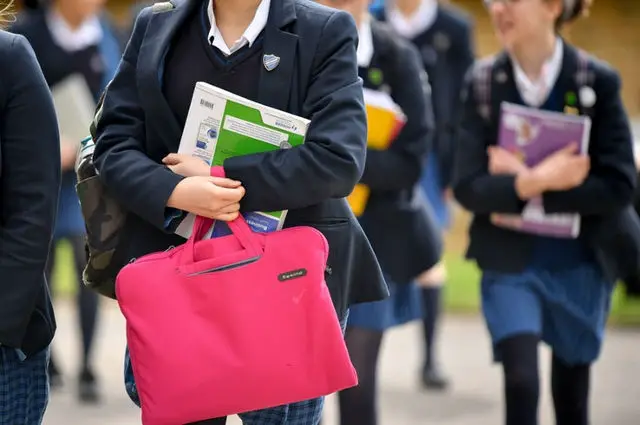Department for Education data shows 12 of the 43 local authority-run schools on the Isle of Wight finished the last financial year in deficit.
This means their budget was not enough to cover all of their costs during the 12 months to March.
One teachers’ union said the ‘astonishing’ number of English schools that have fallen into deficit – more than 1,500 nationwide – is the result of “deliberate underfunding”.
See the Isle of Wight council’s response.
Combined overspend of £3.2 million
Local authority-maintained schools in deficit on the Isle of Wight overspent by a combined £3.2 million during the year – the equivalent of £267,100 each.
The proportion of schools in deficit on the Isle of Wight has almost doubled compared to five years ago.
In 2012-13, just seven out of the 46 schools that were then controlled by the local authority finished the year with a deficit.
National picture
Across England, the proportion of schools in deficit has risen from 5.7% in 2012-13 to 10.2% last year.
More than 30% of secondary schools are now spending more than their budget, up from 13% five years ago.
The figures exclude academies, which are government-funded but are not overseen by the local authority.
NEU: Debt incurred despite schools taking desperate measures
Dr Mary Bousted, joint general secretary at the National Education Union, said:
“Children and young people get one chance at education.
“It must not be ruined by short-sighted policy.
“This debt is being incurred despite schools taking desperate measure to balance the books such as making thousands of teachers and teaching assistants redundant, increasing class sizes, cutting subject choices, and leaving essential building repairs undone.
“Yet still the Government does nothing about the woeful lack of funding given to our schools and colleges.”
Schools are normally required to balance their books, although councils can allow schools to go into the red in exceptional circumstances if the amount is swiftly paid back.
Councils can recirculate unused funds
The figures also show the number of schools that are in surplus, which means they didn’t spend their whole annual budget.
Jon Andrews, director for school system and performance at the think tank Education Policy Institute, said councils could help “ease pressure” on schools by recirculating some of the funds that others haven’t used.
However, schools should not be penalised for running a reasonable surplus, he added, which is the result of good financial management.
Schools with surplus falls
Around 72% of schools on the Isle of Wight finished the year with a budget surplus.
But the proportion of schools operating with a surplus has fallen from 2012-13, when it was 85%.
Mr Andrews said the latest figures were a “stark reminder” of the financial pressures schools are facing.
DfE: “We know that we are asking schools to do more”
The Department for Education said they were giving more money to schools, and had allocated the biggest increases to the schools that have been most underfunded.
A spokeswoman said:
“However, we know that we are asking schools to do more, which is why the Education Secretary has set out his determination to work with the sector to help schools reduce the £10 billion they spend on non-staffing costs and ensure every pound is spent as effectively as possible to give children a great education.”
IWC: Surplus funds can’t be recirculated
An Isle of Wight council spokesperson said:
“As the data shows, the majority of schools were in surplus at the end of the financial year, despite a difficult financial climate.
“The council works with schools which have a deficit to put a recovery plan in place, usually over three years – or up to five in exceptional circumstances.
“This looks across the board at how a school can be run more efficiently.
“Money given to each school must be used to educate its children and therefore cannot be recouped by the council to give to a different one.”
Article shared by Data Reporter as part of OnTheWight’s collaboration with Press Association and Urbs Media





